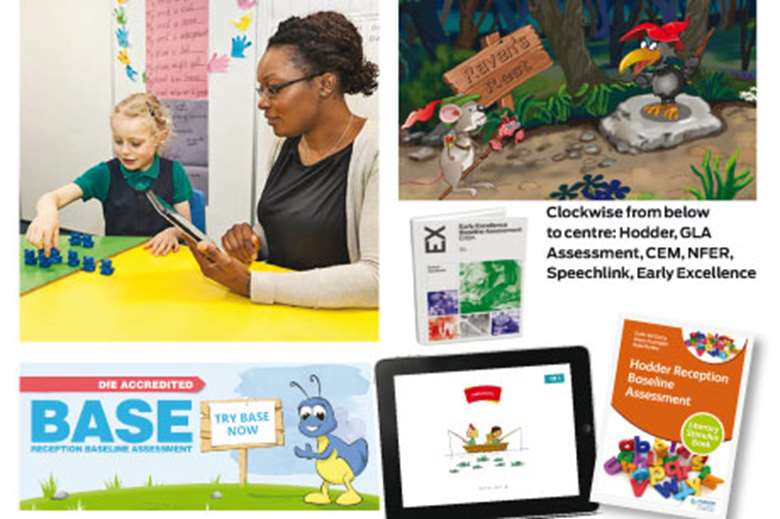Baseline approval process falters
Monday, June 1, 2015
Delays appear to have hit the approval process for the Reception baseline assessment after two-thirds of primary schools opted for the same provider, Nursery World can reveal.

The baseline offered by Early Excellence has been successful in recruiting 11,000 primary schools to use its observation-based assessment.
Some of the remaining five suppliers appear to be continuing to recruit schools, despite the deadline for doing so having passed over a month ago.
Providers had to sign up 10 per cent of all primary schools by the end of April and submit their data to the Department for Education (DfE) to be in with a chance of being on the DfE's approved list of providers to offer the baseline from September.
Children will take the baseline assessment just after they start Reception.
However, as 11,000 of the country's 17,000 primary schools have signed up to the Early Excellence Baseline Assessment (EExBA), it is statistically impossible for all of the remaining five providers to have passed the 1,700 mark.
Providers also had to recruit a representative demographic sample of schools across the country. Those that have failed to sign up sufficient numbers of schools could be removed from the DfE's list.
The DfE is due to inform schools on 3 June which of the six baseline providers have made it on to the final list of providers, so that schools whose first option was not successful in achieving the required number of schools can choose to go with another provider.
A letter sent out by the DfE on 22 May said that following the change in Government the matter would be referred to the new ministers.
Commenting on the success of the EExBA, national development manager Jan Dubiel, said, 'We're pleased that people have decided to go with an observation-based model. The numbers indicate the strength of commitment to that sort of assessment.'
The other baseline providers are CEM Durham University, GL Assessment, Hodder, NFER and Speechlink Multimedia.
While most of the remaining five providers said they were unable to comment at this stage, GL Assessment said it was still recruiting new schools for its baseline assessment.
Chief executive Greg Watson said, 'Schools are still actively seeking a solution despite the fact that the initial deadline has passed, and we are recruiting new schools for our own baseline assessment. The DfE is currently analysing the number of sign-ups from the approved providers and will be making an announcement in early June. We will wait for their announcement before commenting further.'
The DfE confirmed to Nursery World that it would be telling schools which of the six providers have signed up enough schools in due course, and that if a school's original choice of provider did not recruit enough schools to be on the approved list (and is therefore removed from the list), the school would be able to sign up to one of the remaining approved suppliers.
Opposition
There has been mounting opposition to scrapping of the EYFS Profile and the introduction of baseline assessment from high-profile figures, sector organisations and teaching unions, who have joined forces to protest against the introduction of the baseline assessment.
In March, the National Union of Teachers (NUT) signed an open letter opposing the plan, alongside Early Education, TACTYC, the Save Childhood Movement, and Professor Cathy Nutbrown, among others.
The letter's signatories also include the National Day Nurseries Association, the Pre-School Learning Alliance and PACEY.
The experts claim the baseline is 'unreliable, disruptive, statistically invalid and harmful to child well-being'.
They are also against the move to make the EYFS Profile optional from September 2016, which they say is 'a rounded assessment of children's development based on observation over time'.
Campaigners also point out that baseline assessment was introduced by the Labour Government in 1997 but withdrawn in 2002 because it proved unworkable.
Delegates who were at the NUT conference at Easter plan to ballot members for a boycott of the tests before September 2016, when they will be brought in for all schools in England.
Commenting on the criticism, Mr Dubiel said, 'The campaign is obviously well intentioned but highly misleading because it doesn't distinguish between the test-based baselines and EExBA, which is a practice-led, observational-based model. It describes all the baselines as tests, when that's inaccurate.'











